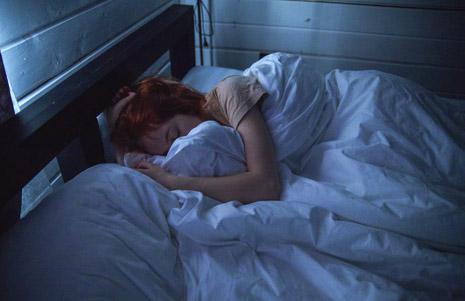Sleep Apnea: Symptoms, treatments, and causes
Aug 18, 21

Sleep Apnea is simply a sleep disorder. In this condition, the breathing of an individual is frequently interrupted during the sleep time. The breathing takes a pause for about 10 to 20 seconds and can happen from 5 to 100 times per hour.
Sleep apnea can actually give you jolts during the sleep because it happens due to lack of oxygen. It can happen temporarily but it is more repetitive during the sleep time. So, whenever you breathe, chances are you will snort, or take a deep breath or in the worst-case scenarios, you will wake up suddenly choking or smothering.
If you are dealing with sleep apnea, you must consult a doctor because if it remains untreated, it can lead to further complications including heart disease, mental disorders, risk of accidents while driving etc.
Scroll down and read more about Sleep Apnea, its common symptoms, causes and treatments.
Symptoms of Sleep Apnea
Of course, it is little tough to identify sleep apnea on your own because most of them occur when are asleep. However, there are some common symptoms that you can observe or tell your partner to do so.
Here are the common symptoms of Sleep Apnea:
- Frequent yet loud snoring
- Choking, smothering, snorting during sleep
- Sleepiness, fatigue, tiredness during daytime
- Morning Headache
- Insomnia (Difficulty in sleeping patterns)
- Hypersomnia (Excessive daytime sleepiness)
- Less attentive and focused
Causes & Risk Factors of Sleep Apnea
While anyone can struggle with sleep apnea, but there are certain factors that cause the problem. Some of the major reasons are mentioned below:
Treatments for Sleep Apnea
When sleep apnea is mild, it can be treated with conservative treatments. If you are overweight, you can work on your body weight to reduce the obstructive sleep apnea. You should avoid taking sleeping pills, alcohol or smoking to not to collapse during the sleep or prolong apnoeic periods. And, according to the problem like sinus or nasal congestion, you can treat sleep apnea.
However, there are some cases that require mechanical therapy to treat sleep apnea. Positive Airway Pressure (PAP) therapy is one of the most common treatments for obstructive sleep apnea. PAP therapy prevents airway closure while in use, but sleep apnea can occur or return when PAP is stopped. There are different styles and devices that are used to treat sleep apnea. Some of them are mentioned below:
CPAP machine is usually set at one single pressure and it’s one of the most commonly used PAP machines.
- Auto CPAP – It uses a range of pressure that self-regulates depending upon the pressure requirements.
- ASV – Adaptive Servo-Ventilation (ASV), a type of non-invasive ventilation that’s used for patients with central sleep apnea. It keeps the airway open and delivers a mandatory breath when required.
- Bi-Level PAP – It uses one pressure during inhalation and lower pressure during exhalation.
Conclusion
To Conclude, sleep apnea can result in major health issues if it’s left untreated. Hypertension, strokes, cardiovascular issues, obesity, heart attacks and so many underlying issues that can occur due to sleep apnea.
Sleep experts at Morpheus suggest you to go for the right treatment for sleep apnea.


